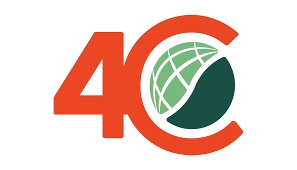4 C COMMON CODE

provides certifications for coffee producers, aiming towards a more sustainable coffee supply chain. 4C’s standards are applied on economic, social and environmental conditions for coffee production and processing. The 4C Code of Conduct is used as a baseline set of sustainable practices and principles across 18 different countries.
The 4C Unit consists of a Managing Entity, or a responsible holder of the certificate, such as a legally registered person, company or organization. The ME implements the Internal Management System and ensures compliance with 4C standards. In addition, 4C requires a Business Partner, or another legally registered person, company or organization which manages the agricultural operations. These service providers are typically traders, storage facilities and processors. Next, an intermediary buyer (trader, exporter, importer or processor) trades the 4C certified coffee outside the 4C Unit. The last actor is the Final Buyer, such as a roaster, manufacturer or private company who purchases the 4C certified coffee. The Final Buyer must comply with the 4C Service Agreement. With intense oversight over the entire process, 4C encourages the integration of sustainable coffee production, creating a positive impact on both local farmers as well as our ecosystems.
LEARN MORE: 4C Certification Services
GLOBAL